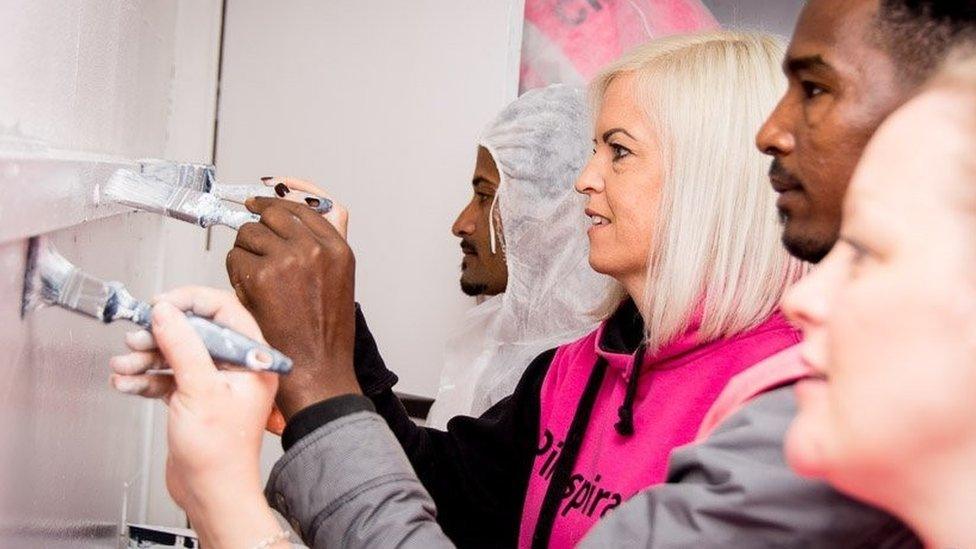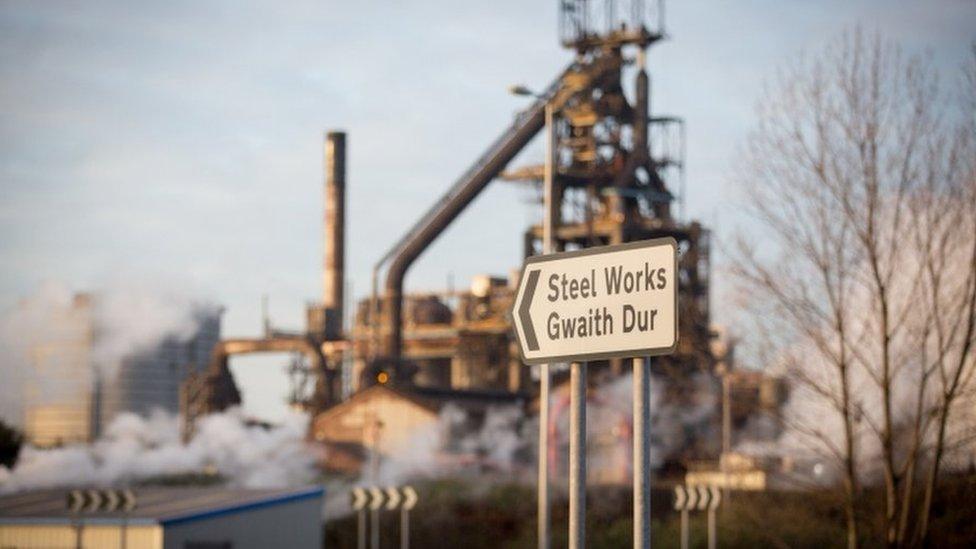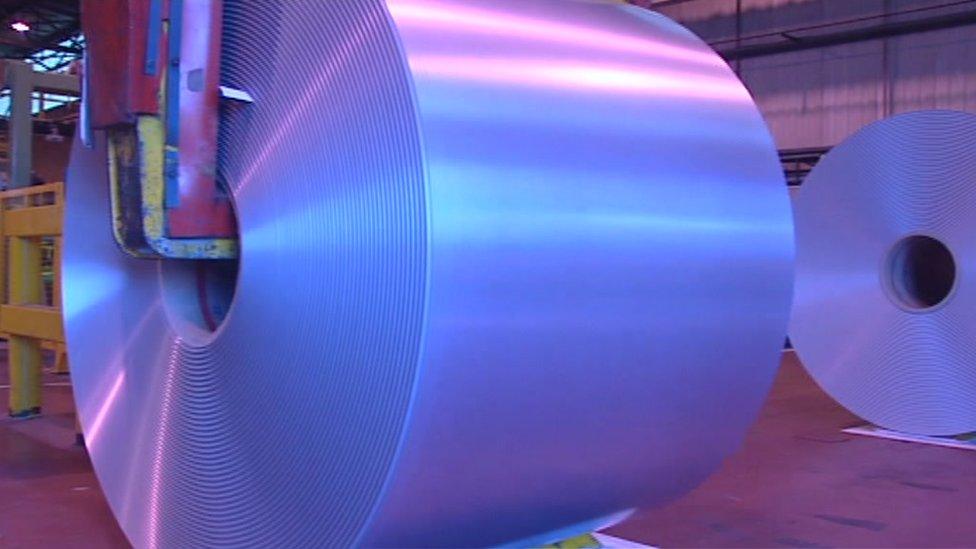Welsh businesses to pass new tests to access £50m pot
- Published
- comments

Pinkspiration has helped 5,500 young people gain more construction skills since it opened in 2011
An "economic contract" to completely change the way Welsh Government supports business is coming into force.
There has been criticism in the past about how the money has been spent - sometimes with little to show for it.
Now firms will have to pass four key tests to access a £50m pot, including proving they are fair employers.
"This is making sure we use taxpayers' money to invest in business with a social purpose, with something added to it," said Economy Secretary Ken Skates.
He believes this "something for something" approach is different and makes quite a grand claim that it is a concept that an Aneurin Bevan or John F Kennedy "of the 21st Century" might embrace.
Mr Skates admits that in the past, business was supported to create jobs "on a simple equation basis".
A simplified economic futures fund worth £50m is to be set up, and four key qualifications will be:
Businesses must have proposals to become carbon-light or free
Have the potential for growth
Promote health, including mental health, improve skills and learning in the workplace
Be committed to fair work practices
It will not initially apply to the Development Bank of Wales, the arms-length investment bank offering business finance of up to a maximum £5m.

The contract is part of a wider economic action plan, external. Opposition parties had criticised the proposals as "woolly" and short on detail when they were first put out to consultation before Christmas.
But Mr Skates said he is "hugely impressed" with how businesses have responded and are enthusiastic.
He launched it formally at Pinkspiration in Abercynon, a construction enterprise which offers placements, mentoring and advice to young people, to help bring through the next generation of workers.
There are more people working in Wales then ever and unemployment has been low for several years but we lag behind in terms of wages and how much we produce.
But the economy minister does not want growth at all costs - and believes its "fruits haven't fallen equally across the economy".
Mr Skates hopes this will help change that.
The challenge for the Welsh Government - particularly in demanding green credentials - is that one of Wales' biggest employers is also one of its hungriest consumers of carbon.
Tata and Aberthaw power station between them account for 40% of all of Wales' carbon emissions.

You might be interested in these stories too:

So in light of his new economic contract, does Mr Skates regret helping the steel industry, and its giant plant in Port Talbot?
He says the Welsh Government has been helping Tata become greener.
"We've invested in skills, we've invested in programmes to drive down energy cost, drive down carbon emissions and we're going to go on doing that," he said.
"We won't apologise for saving steel jobs but what we will do in the future is invest more sharply in those areas of economic activity that will contribute towards competitiveness and future proof business and work towards decarbonising environment."
The whole thrust of his argument is about trying to use incentives to change the behaviour of some businesses.
It raises questions about how bureaucratic that government help could become, but there might also be tensions about what fair work means.
Businesses have complained that government takes too long to decide whether to award a loan or a grant; they would not want that decision making to become even slower.
Phil Corke, a Merthyr businessman, said: "It's the time everything seems to take.
"Being in business we need movement, we need quick movement and they seem to release things in small packages and you're waiting for approval for the next one. If we're a business which is supportable, we need action."
- Published5 April 2017

- Published12 December 2017

- Published16 May 2018
